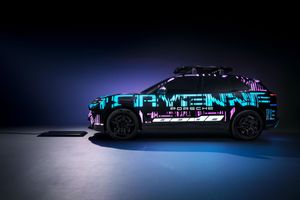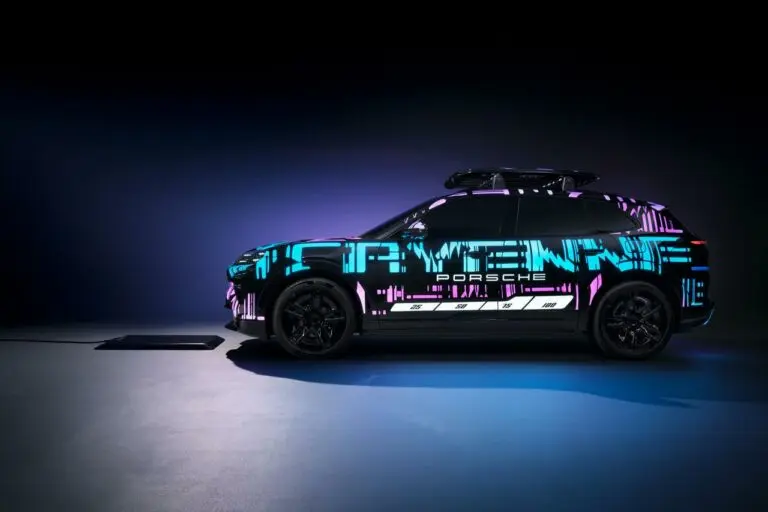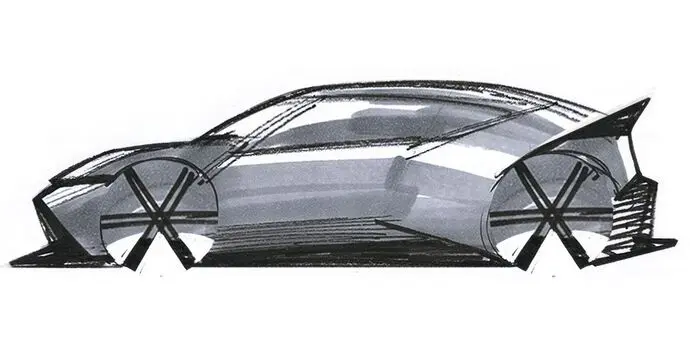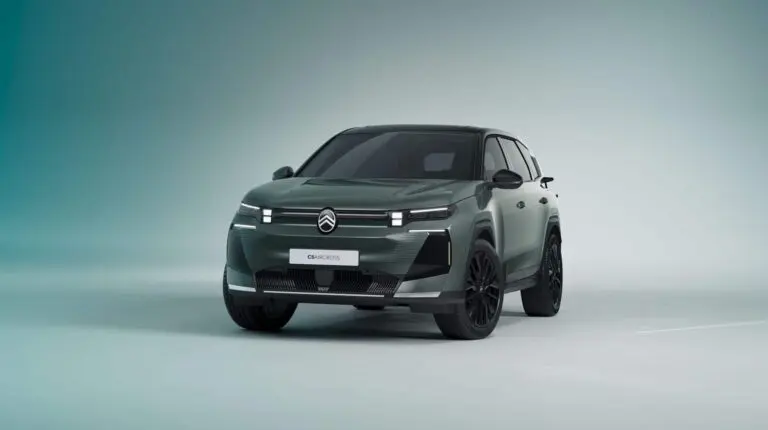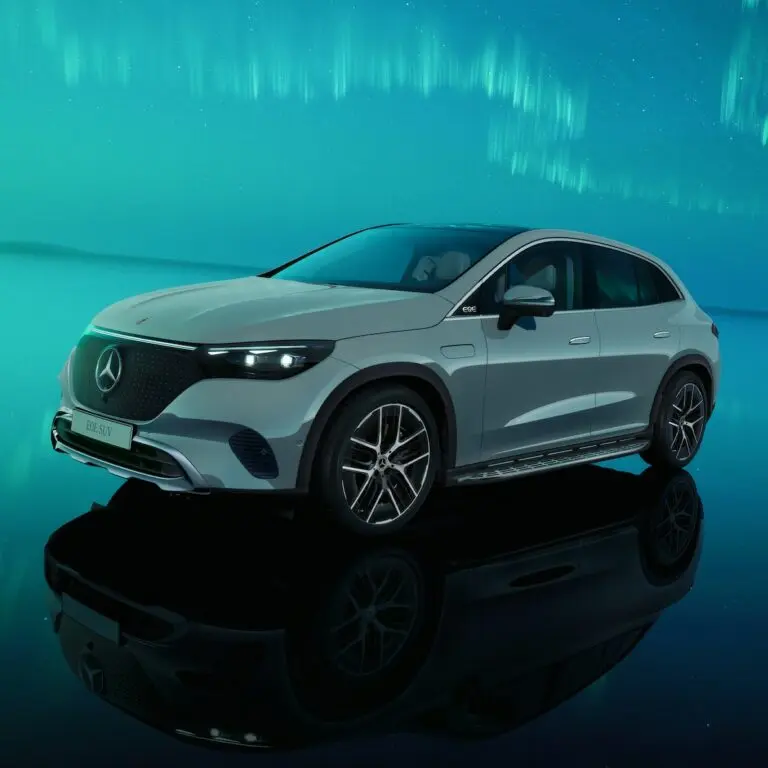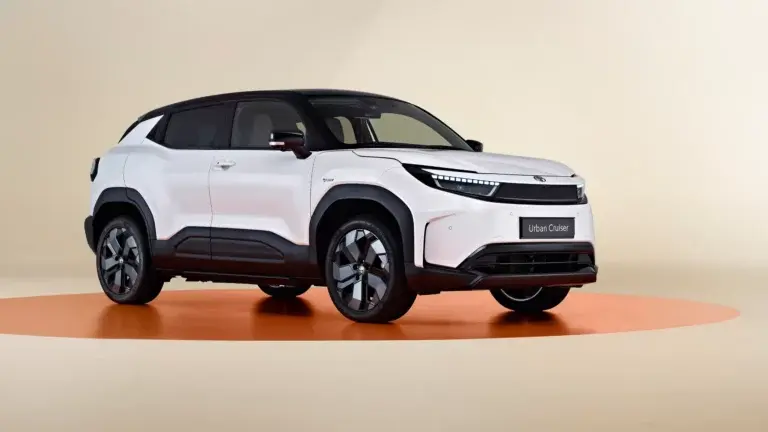Porsche is preparing for the arrival of its 100% electric Cayenne, expected in dealerships in early 2026. But before the official unveiling, scheduled for the end of 2025, the German marque is taking advantage of the Munich Motor Show to unveil an innovation that could change the habits of its customers: induction charging.
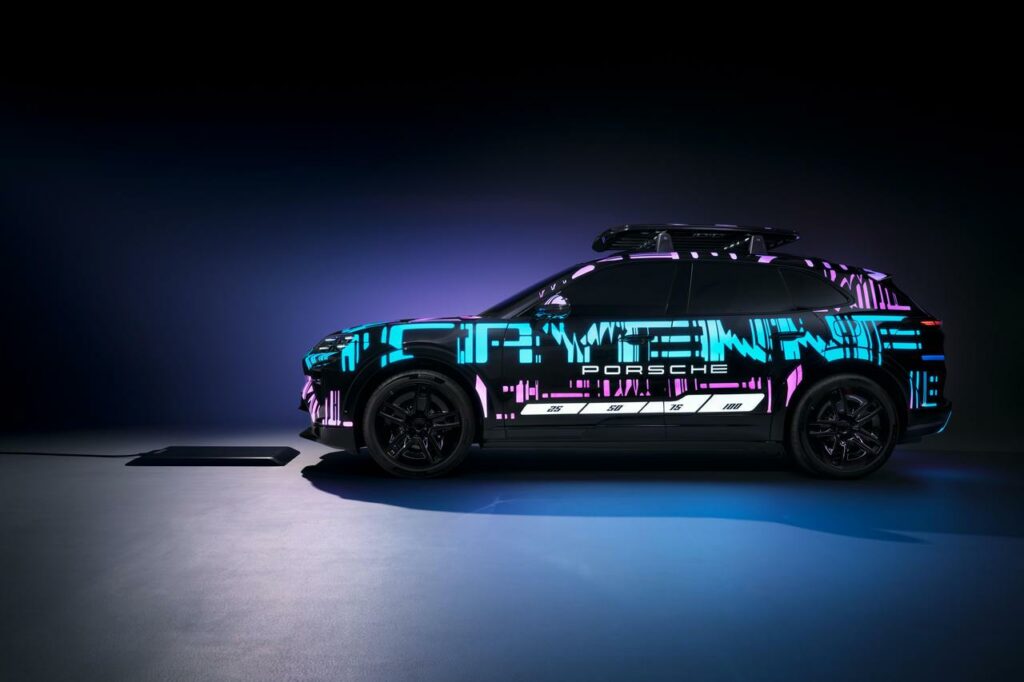
Notably, presented under animated camouflage, the prototype conceals a technology that is still rare in the automotive industry. In practical terms, it will be possible to recharge an SUV simply by parking it on top of a slab installed on the ground, without the need for cables or plugs.
A device designed for domestic use
The system is based on a plate measuring 117 cm by 78 cm, 6 cm thick, which can be installed in a garage, under a carport or even outdoors. The vehicle carries a second plate placed between its front wheels. Alignment is carried out using 360° cameras, and the car then lowers itself automatically to optimise energy transfer. The system delivers 11 kW of alternating current, equivalent to that of a domestic wall-mounted charging point.
Porsche emphasises the efficiency of the process, with a claimed efficiency of 90%. The aim is clear: to simplify home recharging. According to the manufacturer, 75% of owners of electric models already fill up at home.
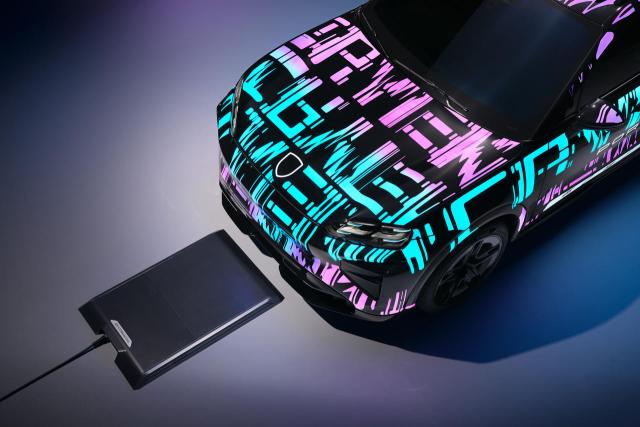
Useful innovation or simple comfort?
Induction charging is not a technical revolution, as it already exists for smartphones. Nevertheless, its application to a production vehicle is a first. There remains the question of cost, estimated at several thousand euros as an option. Some will see it as a gadget, while others will appreciate the convenience, especially in a premium segment where the customer experience counts as much as performance.
Moreover, at the same time, the future Cayenne will retain DC fast charging, taking advantage of its 800 V architecture to exceed 350 kW. A perfect combination of everyday practicality and long-distance travel.

